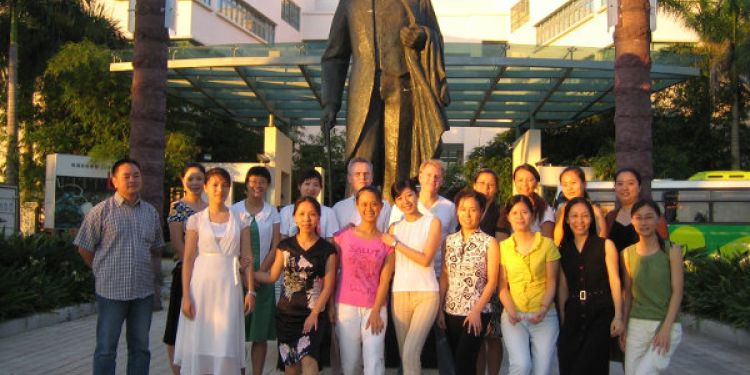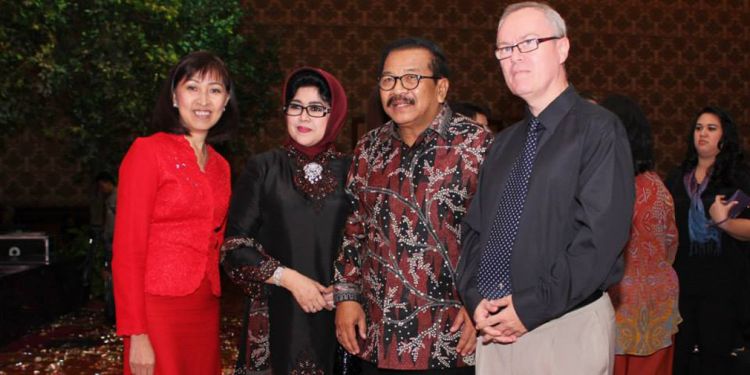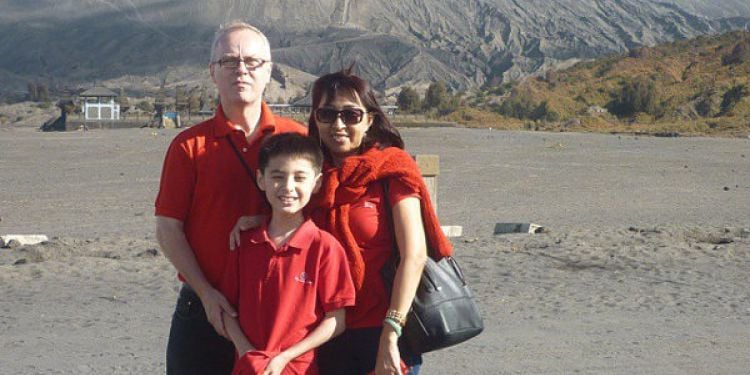
Wayne yearned for something bigger than the small-town life he had grown accustomed to, and decided to explore what lies beyond Canada's borders. His travels took him to Asia, where he ended up remaining, eventually settling in Surabaya, Indonesia. Here, he shares with Expat.com his thoughts about his expat journey and life in Indonesia.
Where do you come from, what were you doing before and what are you doing nowadays?
My name is Wayne Duplessis. I was born in a small town in Ontario, Canada. We then moved to a village where I lived for eight years. Our village had 300 people, with a regular influx of tourists during the winter and summer holidays. Normally it was a quiet and generally carefree life. It instilled in me a desire to see more. As soon as possible, I began to explore. After a short, undistinguished period in the military, I worked in the US for a year and then came bank to Canada to work for the bank, an electric utility, and as a stockroom/dept. manager. Excited by the lack of intellectual and financial opportunity, I went back to school. I had done a bit of teaching and tutoring, but it wasn't until college that it became a regular thing. I worked for the college after graduation and then headed to South Korea. I was going to be in Asia for six months, but seem to have stayed a bit longer. I have been here since November 1996 and I have no immediate plans to leave.
Why did you choose to expatriate to Indonesia?
I moved to Indonesia after a year in Busan, South Korea. I contacted English First in London, as I had been working for English First in South Korea. I asked what opportunities were available. They offered me Russia, China and Indonesia. I always wanted to see Russia, but the economy then was in turmoil. Next up was China, also on my to-see-list, but I chose to wait. I chose Indonesia. They asked Jakarta or Surabaya. That past July, there had been some demos in Jakarta so I chose Surabaya. I knew a bit of Indonesian history, and I wanted a change.
As a Canadian expat, what where the procedures you had to follow to move there?
I bought a ticket and jumped on a plane. They said no jumping, so I sat down and behaved myself. Procedures: Buy ticket, sit down, and behave yourself.

What has surprised you the most at your arrival?
First surprise was that there was no car waiting for me. Second was how helpful people were, and how friendly. I found a ride with a hotel bus (that was off-duty) and found a hotel that fit my meager budget.
Was it difficult to find accommodation in Surabaya? What are the types of accommodation available?
The first few days I stayed at a little hotel on Embong Kenongo. They had clean rooms, decent food and fit the budget, and I could walk to EF Kayun. The next place was shared accommodation in a three-bedroom house with another teacher near ITATS University. At this point Surabaya was a very different city. The world ended at Galaxy Mall in the East, and effectively at Papaya in the West. Ciputra School and Surabaya Intercultural School were already there, but taxis would charge you double to go there as it was unlikely they would get another fare in the hinterlands.
What are the local labor market's features? Is it easy for an expat to find work in Surabaya?
The local market is based on manufacturing, but the service sector is growing steadily. If an expat offers skills of value and is qualified then there isn't much problem. Government regulations change from time to time, and may require someone to get a new certification or look elsewhere to earn a living. It is annoying at times, understandable at others. Change is a constant in life, and Surabaya is proof of that.
How do you find the Indonesian lifestyle?

It is tempting to be obtuse and say that I opened the window and it was there, but it fact I found that most aspects of life here were easy to accept. The noise has been the hardest adjustment, and that ranges from mosques, to honking horns, roosters, people walking through neighbourhoods and shouting (not salespeople) where the goal seems who can damage the most eardrums. I did have to adjust to having a housekeeper which turned out to be such a terrible hardship.
Have you been able to adapt yourself to the country and to its society?
The people here are very welcoming and that makes adjustment easier.
What does your everyday life in Surabaya look like?
I get up at 5:00am, I have a coffee and check my email. I shower, shave and then have breakfast, usually cornflakes or oatmeal. I leave home at six and I begin teaching at 7:30. I drive back to Citraland and teach in the afternoon. I arrive home at 7:30pm or 8:00pm. It's a long day, so I usually nap in the car there and back. Catching up on lost sleep is one of the perks of having a driver.
What is your opinion on the cost of living in Surabaya? Is it easy for an expat to live there?
A single expat can live quite comfortably on a teacher's salary, but with a family it's a bit more of a balancing act. Things have gotten expensive here. More is available than ever before, but you pay for those pleasures. We buy a lot of fruit, vegetables, meat and tahu (Tofu) from traditional markets because it is both cheaper and fresher.
How do you spend your free time?

I walk with my wife. We see movies. Chris Kyriss and I organize events for expats and locals through our group, Bridges Surabaya. Our events are in local clubs, restaurants and bars and we've had a few outbound activities.
What are your favorite local dishes?
My favourite remains Soto Ayam, but I enjoy rawon, rendang, and Gule Kambing (not often as it really isn't healthy).
What do you miss the most about your home country?
I miss family and autumn. I was just remembering how beautiful a Canadian autumn can be. I look forward to rediscovering the colors and smells of a September morning. How difficult to communicate the long moments spent admiring the golds, reds greens and browns. To feel the last warmth of the year on your face. To stare unashamedly into clear autumn skies. To breath deep of the cooling breeze. To taste greedily of the clean air. How to explain looking up at the sky and knowing that this brief, transitory experience has to be embraced and then tucked safely away as winter's approach is heralded in the ever-darkening skies.
What has motivated you to write your blog “Travels with my Angst”? How does it help?
I, and a friend, started writing a website, on the old Geocities network in 1997, with the thought of creating an online magazine. For both of us it was a creative outlet. A couple of other friends joined in and it endured for a year or so. I kept the original website going on my own and the interest of the other's faded. Vantage Online was eventually resurrected as an archived website. Much of that content eventually found its way into the later blog.
The urge to write is always there. 'Travels with my Angst' started in February 2005, a couple of years after we had moved to China. It was a way to focus information and clear the mind. It was also a way to quickly share photos and details of life in China. At the time I was the Director of Studies for English First Changsha. A large part of the job was recruiting teachers. The page became more of a travel and personal journal than originally intended, but that's how life evolves.
The final part of the question was how does this help? It's therapy. Much like talking things out, writing is a great way to crystalize thought, see alternatives and just vent.
Would you like to give any advice to soon-to-be expatriates in Indonesia?
Do your research on sites like Expat.com (mostly on this one), and ask friends who have or are currently living the expat life. Keep your ears, eyes and mind open.
What are your plans for the future?
We would like to do some online training. I have no set plans, other than taking care of my family.



















